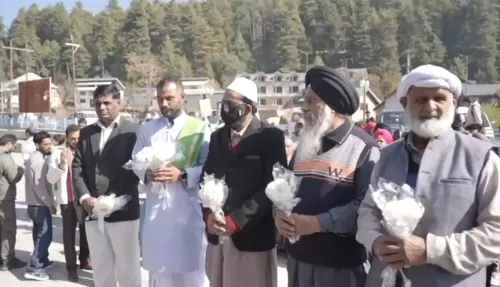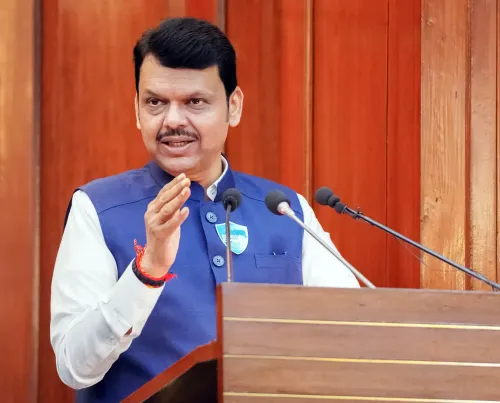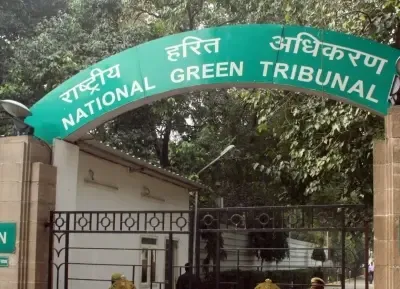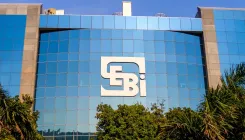PM Modi Critiques Congress for Appeasement Politics, New Law Preserves Waqf Sanctity
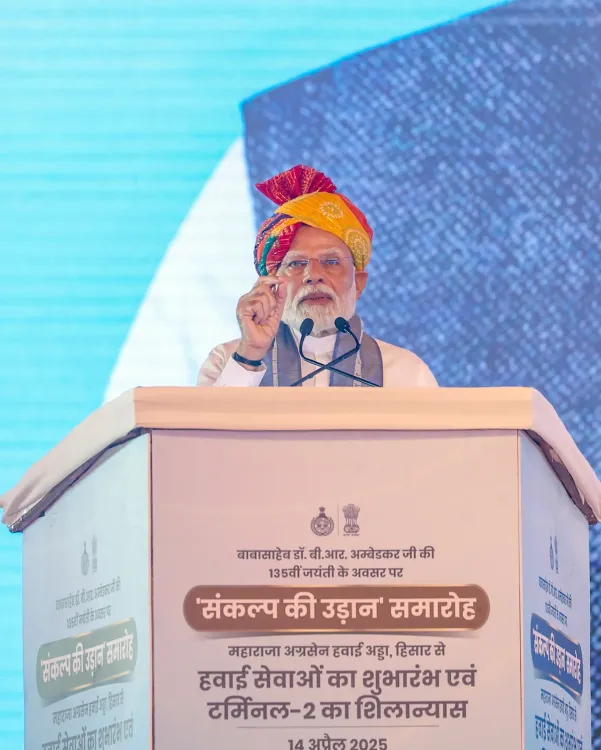
Synopsis
Key Takeaways
- PM Modi accused Congress of appeasement politics.
- He challenged Congress to appoint a Muslim party president.
- New Waqf Act amendments protect tribal lands.
- Haryana's Maharaja Agrasen Airport terminal to cost over Rs 410 crore.
- Promoting PM Surya Ghar Muft Bijli Yojana for solar energy.
Hisar/Yamunanagar, April 14 (NationPress) In a pointed critique of the Congress party, Prime Minister Narendra Modi on Monday charged them with engaging in appeasement politics. He challenged them to appoint a Muslim party president and condemned their resistance to the revised Waqf Act, asserting that the new changes respect the sanctity of Waqf while safeguarding the rights of the underprivileged.
“If the party genuinely valued the Muslim community, they would have named a Muslim as their party chief or reserved 50% of their tickets for Muslim candidates,” PM Modi stated during a public gathering in Hisar, illustrating that their motives have never aligned with the true welfare of Muslims, revealing their authentic character.
PM Modi emphasized that the extensive lands designated for Waqf, intended to aid the impoverished, vulnerable women, and children, have been misused by a select few land mafias. He pointed out that these mafias were encroaching on properties belonging to Dalits, backward classes, and tribals, leaving the Pasmanda Muslim community without any assistance.
He remarked that the modifications to the Waqf Act will terminate such exploitation, highlighting a critical new clause in the amended law that ensures tribal lands remain untouched by Waqf boards.
He characterized this as a significant advancement in safeguarding tribal rights.
The new regulations will honor the sanctity of Waqf, ensuring that the rights of impoverished and Pasmanda Muslim families, women, and children are protected, he stated during his public address after inaugurating the first commercial flight from Hisar to Ayodhya and laying the groundwork for the terminal-2 building at the Maharaja Agrasen Airport in Hisar, which is expected to be completed within two years.
The airport terminal is projected to cost over Rs 410 crore and is a part of PM Modi’s vision to make air travel safer, more economical, and accessible to everyone.
Haryana Chief Minister Nayab Singh Saini and several state ministers were present at the event.
While addressing his second consecutive rally after laying the foundation stone of the 800 MW thermal power plant unit and compressed biogas plant by pressing the button from the stage in Yamunanagar, PM Modi remarked, “There is a stark difference between BJP-governed states and those ruled by Congress. In Karnataka, the Congress government has imposed numerous taxes on the populace, amplifying their financial strain. Even their own ministers have conceded that Congress has elevated Karnataka to the top in corruption.”
In Telangana, he noted, the Congress has already started forgetting the pledges they made to the populace. “Their actions, such as demolishing forest land and harming the environment, display a total disregard for nature.”
Haryana currently generates 16,000 MW of electricity, which is anticipated to rise to 24,000 MW. “On one hand, we are investing in thermal power plants, and on the other, we are empowering individuals to become power producers themselves,” PM Modi added.
“Through the PM Surya Ghar Muft Bijli Yojana, households can slash their electricity bills to zero by installing solar panels. They can even sell surplus electricity back to the grid. To date, over 1.25 crore households have registered under this initiative,” he mentioned.
Paying homage to Babasaheb B.R. Ambedkar and recalling his guiding principles, PM Modi noted that Babasaheb asserted that industrial development “is a pathway to social justice.” He believed that since Dalits lack sufficient land, they would gain from industrial growth.
PM Modi remarked, “Babasaheb also collaborated closely with India’s inaugural Industry Minister, Dr Syama Prasad Mukherjee, in this regard. Even Chaudhary Sir Chhotu Ram stated that when farmers earn extra income through small industries, it fosters prosperity in villages. Likewise, Chaudhary Charan Singh, who devoted his life to enhancing the lives of villagers and farmers, believed that industrial growth and agriculture should complement each other.”
PM Modi stated that the BJP government in Haryana now purchases 24 crops at minimum support price (MSP). “Farmers have also significantly benefited from the PM Fasal Bima Yojana, with claims exceeding Rs 9,000 crore already disbursed under the scheme. Under the PM-Kisan Samman Nidhi, over Rs 6,500 crore has been directly transferred to farmers' accounts in Haryana,” he concluded.

